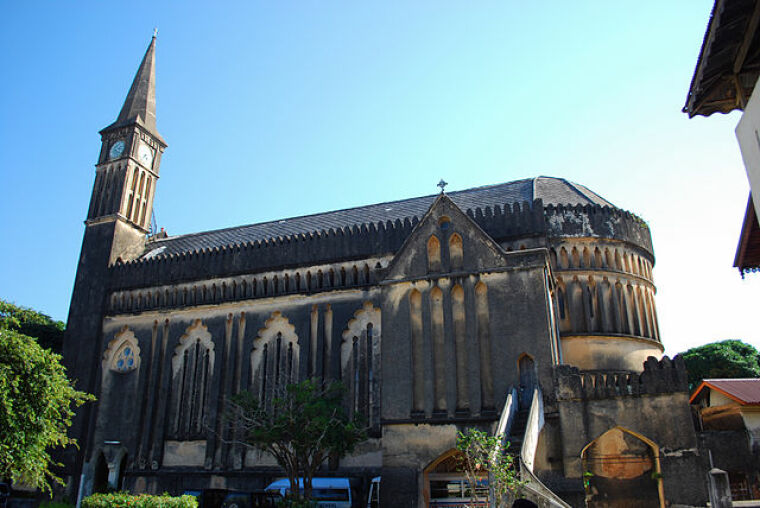Tanzania arrests three Christians for cooking food at home during Ramadan

Three Christians were reportedly arrested in their home in Tanzania last month for cooking food during the Muslim Ramadan fast.
According to Christian Solidarity Worldwide (CSW), Tanzanian police entered a private home in Zanzibar on June 16 and arrested Emmanuel Yohana, his wife Katherine Emmanuel and a woman identified only as Khadija.
The two women were reportedly frying fish in the kitchen when the authorities, led by the area district commissioner, forcefully entered the property of the couple.
The three Christians were told that they had violated the law by cooking food during Ramadan. One police officer reportedly abused them verbally and said, "Today you will know how to fast."
The authorities released the Christians three days later, following interventions from church local leaders.
CSW's Chief Executive Mervyn Thomas said that the arrests were "unjust and unwarranted" because the three Christians were cooking food in a private home, and as non-Muslims, they were under no obligation to observe Ramadan.
He contended that the arrests were "in violation of provisions within Tanzania's constitution that recognise the right to freedom of religion or belief and prohibit discrimination on the basis of religion."
"We urge the Government of Tanzania to intervene to ensure that constitutional provisions for the right to freedom of religion or belief are not only respected but also upheld by those tasked with enforcing the law," Thomas said.
Although the majority of Zanzibar's population are Muslims, the Constitution of Tanzania declares the nation as a secular state and protects freedom of religion and belief for all, according to CSW.
However, the Christian minority in Zanzibar experiences discrimination in various forms, including periodic attacks on churches and denial of permits for the construction of new houses of worship.
Local officials often impose extra-legal processes that are aimed at preventing the construction of churches. Christians are often required to obtain a permit from the community to build a new church, but their requests are usually denied due to the religious demographics.
While attacks on churches are regularly reported to the authorities, the local government rarely pursue charges against the perpetrators, even when they are identified.
Thomas urged the local government in Zanzibar to "review local planning decisions and to bring an end to the discriminatory practices" that prevent Christians from building churches.
"Mindful of Tanzania's religious diversity, we urge the Government of Tanzania to prioritise the respect, promotion and protection of the right to freedom of religion or belief throughout the nation for all its citizens, regardless of their creed," he said.
Tanzania is ranked in the Open Doors 2017 World Watch List as the 33rd country where Christians experience severe persecution.
 Christians don't have to affirm transgenderism, but they can’t express that view at work: tribunal
Christians don't have to affirm transgenderism, but they can’t express that view at work: tribunal Archaeology discovery: Medieval Christian prayer beads found on Holy Island
Archaeology discovery: Medieval Christian prayer beads found on Holy Island Presbyterian Church in America votes to leave National Association of Evangelicals
Presbyterian Church in America votes to leave National Association of Evangelicals Over 50 killed in 'vile and satanic' attack at Nigerian church on Pentecost Sunday
Over 50 killed in 'vile and satanic' attack at Nigerian church on Pentecost Sunday Ukrainian Orthodox Church severs ties with Moscow over Patriarch Kirill's support for Putin's war
Ukrainian Orthodox Church severs ties with Moscow over Patriarch Kirill's support for Putin's war Islamic State kills 20 Nigerian Christians as revenge for US airstrike
Islamic State kills 20 Nigerian Christians as revenge for US airstrike Man who served 33 years in prison for murder leads inmates to Christ
Man who served 33 years in prison for murder leads inmates to Christ


 Nigerian student beaten to death, body burned over ‘blasphemous’ WhatsApp message
Nigerian student beaten to death, body burned over ‘blasphemous’ WhatsApp message 'A new low': World reacts after Hong Kong arrests 90-year-old Cardinal Joseph Zen
'A new low': World reacts after Hong Kong arrests 90-year-old Cardinal Joseph Zen Iran sentences Christian man to 10 years in prison for hosting house church worship gathering
Iran sentences Christian man to 10 years in prison for hosting house church worship gathering French Guyana: Pastor shot dead, church set on fire after meeting delegation of Evangelicals
French Guyana: Pastor shot dead, church set on fire after meeting delegation of Evangelicals ‘Talking Jesus’ report finds only 6% of UK adults identify as practicing Christians
‘Talking Jesus’ report finds only 6% of UK adults identify as practicing Christians Mission Eurasia ministry center blown up in Ukraine, hundreds of Bibles destroyed: 'God will provide'
Mission Eurasia ministry center blown up in Ukraine, hundreds of Bibles destroyed: 'God will provide' Church holds service for first time after ISIS desecrated it 8 years ago
Church holds service for first time after ISIS desecrated it 8 years ago Burger King apologizes for 'offensive campaign' using Jesus' words at the Last Supper
Burger King apologizes for 'offensive campaign' using Jesus' words at the Last Supper Uganda: Muslims abduct teacher, burn him inside mosque for praying in Christ’s name
Uganda: Muslims abduct teacher, burn him inside mosque for praying in Christ’s name